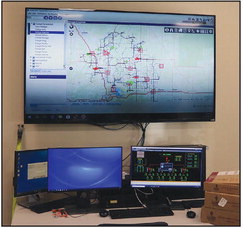CVEC powering the community for the future


First established in 1936, Chippewa Valley Electric Cooperative (CVEC) was incorporated in 1937, and in 1938, the first person received power to their home, with 112 miles of line ...


First established in 1936, Chippewa Valley Electric Cooperative (CVEC) was incorporated in 1937, and in 1938, the first person received power to their home, with 112 miles of line ...